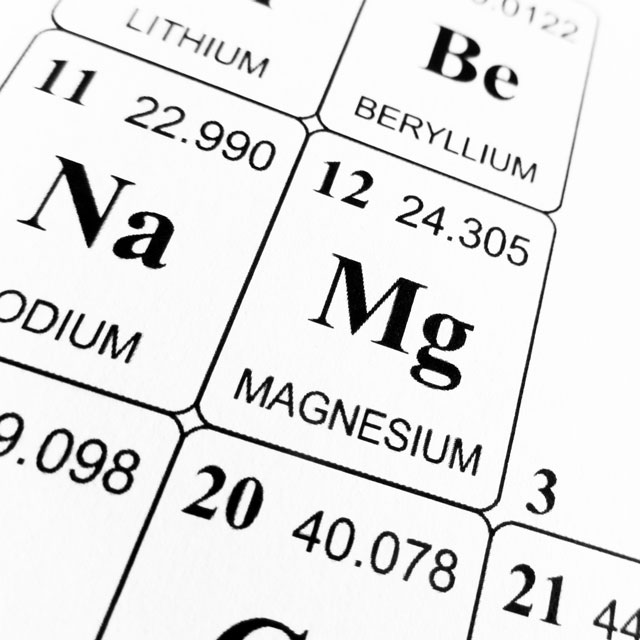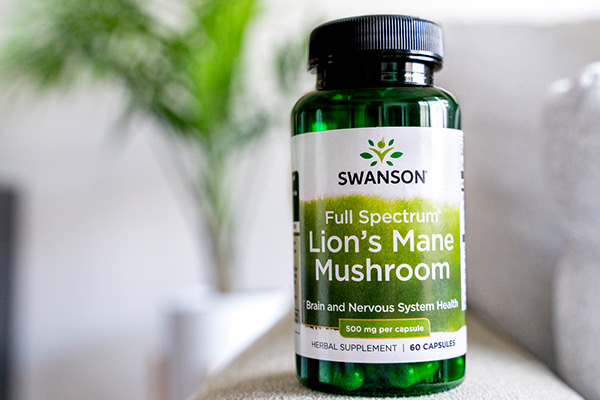Magnesium for Sleep
Are you among the 60 million Americans that rarely get a restful night of sleep?1 If so, it could be harming your health. According to reports from the Center for Disease Control and Prevention (CDC), people who don’t get enough sleep have a higher risk for many health problems including issues related to weight, blood pressure, heart health and mental health.2 Getting too little sleep can also affect your mood, cognitive function and generally make you less productive.2
There are a lot of factors that can contribute to having trouble sleeping, including too much blue light before bedtime, irregular bedtimes, stress, lack of exercise, or any number of other potential factors. But one thing you might not have considered is taking magnesium for sleep. This is important because people with low magnesium levels are more likely to experience poor sleep, such as difficulties falling or staying asleep, and magnesium supplements have been shown to improve sleep quality.
Magnesium is a macro-mineral that plays key roles in mental and physical health, as well as mental and physical relaxation. In fact, magnesium is involved in almost every system in the body, playing a role as a cofactor in more than 300 enzymatic reactions, for example. The trouble is that many adults in the United States may be deficient in magnesium.3 Reasons this deficiency may exist include:
- The soils that our foods are grown in are becoming depleted of magnesium, and even when foods should contain natural magnesium it often gets filtered out in processing. Whole wheat is a great example. Only 16% of the magnesium in whole wheat makes it through processing into wheat flour.4
- The natural magnesium in groundwater is filtered out before making it to our faucets.4
- We don’t eat enough foods that are high in magnesium to meet our daily intake requirements.
- The relationship between stress and magnesium is tricky because the more stressed you become the more magnesium your body wastes, but if you are low in magnesium, that deficiency can contribute to a stronger stress response.5
- Drinking alcohol reduces the amount of magnesium your body absorbs.6
- Taking vitamin D also changes the amount of magnesium you may need to take because magnesium is involved in vitamin D absorption.6
Magnesium and Sleep
Magnesium plays a role in relieving many issues that may contribute to poor sleep including muscle tension and stress. Taking magnesium as a sleep aid is an opportunity to help support your body's natural sleep processes through making sure it gets enough of this critical nutrient.
Why does magnesium help you sleep? Magnesium is essential for whole-body wellness, including the healthy functioning of GABA receptors. GABA stands for gamma-aminobutyric acid, which is a neurotransmitter that helps calm the brain and reduce tension. Magnesium helps increase GABA, which is responsible for helping the brain “switch off” so you can sleep. Have you ever lain in bed staring at the ceiling with your thoughts racing? Magnesium and your GABA receptors may have played a role.
Magnesium also supports nerve and muscle function, decreasing their excitability. If you have low magnesium levels you may have increased irritability in your nerves and muscles, and as a result, your sleep could be affected. Magnesium helps soothe muscle fibers, promoting muscle comfort and relaxation. Magnesium also helps regulate stress hormones.7 All this adds up to a potentially significant increase in sleep quality from magnesium.
How Does Magnesium Help You Sleep?
- Magnesium helps you sleep by encouraging the healthy functioning of GABA receptors, which helps your mind stop racing and “shut off” at night so you can get the rest you need.
- Magnesium helps relax muscle fibers so you can fall asleep more easily.
- Through its role in transporting calcium and potassium ions across cell membranes, magnesium supports healthy nerves, muscles and heart rhythms.8
- Magnesium’s role in the absorption of calcium and potassium also helps with restlessness in the legs and promotes comfort.
- Magnesium helps regulate stress hormones so you can feel calmer and more at peace.
- Magnesium encourages healthy digestion so you may be less likely to experience gastrointestinal disturbances that could hinder sleep.
Magnesium Sleep Supplement
Magnesium sleep supplements can help people who have trouble falling asleep, wake up too early, or just don’t get quality sleep and wake up still feeling tired. Magnesium may also help with age-related circadian rhythm changes, as well as irregular sleeping patterns that develop as a result of changes in environments or lifestyles.9 Studies suggest that magnesium helps improve sleep quality and helps relieve difficulties falling asleep at night and waking up too early.9
Does Magnesium Make You Sleepy?
Magnesium helps activate neurotransmitters that calm your body and mind. It helps you relax, but it doesn’t necessarily make you sleepy if you take it during the day, at least not directly. If you get sleepy when you take magnesium it may be because you're tired from other factors or from having a sleep deficit and stress hormones were just keeping you going. If you are caught up on your sleep and getting adequate nutrition otherwise, magnesium can actually help you feel more refreshed and energized because it gives your body energy on a cellular level.
It may take a while after you begin supplementing to achieve and maintain healthy levels of magnesium in your system and to see how your body will ultimately respond to getting enough magnesium. Many people have more energy, less stress and sleep better once their bodies have optimal levels of magnesium.
Best Magnesium for Sleep?
There are several types of magnesium supplements offering unique benefits and absorption levels. The best magnesium for sleep includes chelated magnesium glycinate and magnesium taurate. Chelated magnesium is easily absorbed by the body, making it one of the most bioavailable forms of magnesium available. Magnesium taurate provides both magnesium and taurine, which is an amino acid that has a calming effect on the nervous system.
Magnesium Glycinate Sleep Aid
Magnesium glycinate is often used as a natural sleep aid because this type of magnesium offers a high level of bioavailability, and is less likely to cause unwanted laxative effects than some other forms of magnesium. While magnesium glycinate is a great choice for a natural sleep aid, magnesium taurate is also a good option.
The primary difference between these magnesium supplements is the type of amino acid molecule to which the magnesium is bound, which affects how the magnesium is absorbed. Magnesium molecules are also different sizes in various formulations. Magnesium taurate is magnesium bound to taurine (which also helps you relax), magnesium aspartate is magnesium bound to aspartic acid, magnesium citrate is magnesium bound to citric acid, and so on.
Chelated magnesium glycinate tends to be the preferred choice of magnesium for aiding sleep due to its high bioavailability, and the chelates in Swanson’s Albion Magnesium Glycinate are even small enough to pass through cell membranes.
How Much Magnesium for Sleep?
The magnesium dosage for sleep depends on how much magnesium you already get in your diet. Adults generally need between 310 mg - 420 mg of magnesium each day.6 You’ll find a detailed list of the Recommended Daily Allowances (RDA) below for adults. These recommendations are from the National Institutes of Health.
Magnesium Dosage (Adult Intakes)
- Women 18 years: 360 mg
- Pregnant Women 18 years: 400 mg
- Men 18 years: 410 mg
- Women 19-30 years: 310 mg
- Pregnant women 19-30 years: 350 mg
- Men 19-30 years: 400 mg
- Women 31 years and older: 320 mg
- Pregnant Women 31 years and older: 360 mg
- Men 31 years and older: 420 mg
Magnesium supplements are typically available in doses from 100 mg up to 400 mg per capsule, so make sure to choose a magnesium supplement that is right for you based on your daily magnesium intake. And if you are taking any prescription medications, be sure to check with your doctor before taking a magnesium supplement for sleep because some medicines may interact with magnesium.
You can find a list of foods high in magnesium in our article 10 Magnesium-Rich Foods to Add to Your Diet.
Other Benefits of Magnesium
With so many potential benefits, adding a magnesium supplement to your diet should be an easy decision. In addition to helping you get a more restful night of sleep, magnesium supports bone growth, healthy blood pressure and the transport of calcium and potassium to your cells. It helps your body synthesize proteins, neutralizes stomach acid and is vital for cellular energy production. Magnesium is also known to support healthy cognitive function and to provide relief from stress and occasional anxiousness.
Read all about the benefits of various forms of magnesium in the article Magnesium Benefits & Uses.

About Lindsey Toth, MS, RD
Lindsey is a nationally recognized registered dietitian and nutritionist with a soft spot for ice cream. She empowers people to take charge of their health by finding the balance between the pleasure and nourishment in food. Her philosophy is that you should take care of your body because it’s the only permanent home you have. It’s what inspired her to pursue a career in nutrition.
*These statements have not been evaluated by the Food and Drug Administration. These products are not intended to diagnose, treat, cure, or prevent any disease.
Sources
1. Can't Sleep? Neither Can 60 Million Other Americans. NPR. Read source
2. Are you Getting Enough Sleep? CDC. Read source
3. The Magnesium Miracle by Carolyn Dean, M.D. Read source
4. Magnesium Treatment. PubMed. Read source
5. Magnesium and the Brain. Psychology Today. Read source
6. Magnesium Fact Sheet for Health Professionals. National Institutes of Health. Read source
7. Magnesium Supplementation. PubMed. Read source
8. Magnesium Fact Sheet. National Institutes of Health. Read source
9. The Effect of Magnesium Supplementation. PubMed. Read source
10. Lack Energy? Maybe It's Your Magnesium Level. USDA. Read source




